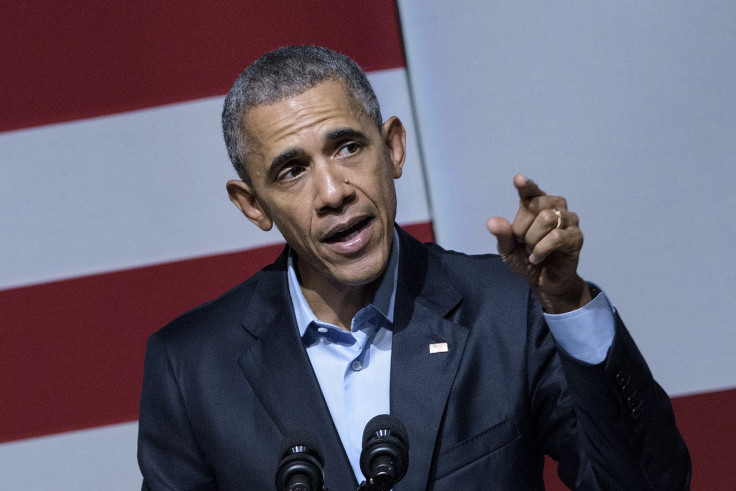Obama Says US Won't Change Syria Policy, Denies Putin Is Challenging Him

Despite Russian airstrikes in Syria and the failure of a U.S. program to train opposition forces, President Barack Obama said there would be no change in policy related to the war in Syria in an interview with CBS’s “60 Minutes,” which aired Sunday night. Obama maintained there were no “silver bullets” to solve the civil war in Syria.
Obama said the U.S. would try to use diplomatic channels to work with both Iran and Russia to put pressure on Syrian President Bashar Assad for a “transition.” Russia and Iran have backed Assad while the U.S. has called for his removal.
“But … what we are not going to do is to try to reinsert ourselves in a military campaign inside of Syria,” Obama said.
The interview taped Tuesday featured tense moments. When it was suggested Russian President Vladimir Putin was “challenging” the American president’s leadership, Obama responded: “I got to tell you, if you think that running your economy into the ground and having to send troops in, in order to prop up your only ally is leadership, then we've got a different definition of leadership.”
.@SteveKroft questions Obama on Russia's involvement in Syria, ISIS & the presidential race http://t.co/twavglvORP pic.twitter.com/fWAjKF8aSC
— 60 Minutes (@60Minutes) October 12, 2015
When asked if the U.S. knew Russia would begin airstrikes in Syria when the two leaders met in late September at the United Nation’s General Assembly in New York, Obama said, “We had pretty good intelligence.”
The war in Syria has taken the lives of more than 200,000 people and displaced millions, creating a refugee crisis in both surrounding nations and Europe. Opposition forces on the ground have fought both Syrian government forces and the terrorist Islamic State group, also known as ISIS, which has captured territory in Syria and Iraq.
A $500 million U.S. program to train Syrian opposition forces to fight ISIS was canceled last week. The U.S. said it would provide direct aid to existing groups on the ground instead. Obama told “60 Minutes” he had had doubts about the program before it began.
There were unconfirmed reports Sunday moderate Sunni forces had joined with the Kurdish People's Defense Units to form a new group known as the Syrian Democratic Forces.
Eight senior ISIS members were killed in an airstrike conducted by the Iraqi government Sunday. Abu Bakr al-Baghdadi, the leader of the terrorist group, was not among those killed, Reuters reported. A U.S. official, speaking anonymously, said the U.S. had not seen any information Baghdadi had been killed or wounded.
© Copyright IBTimes 2025. All rights reserved.






















